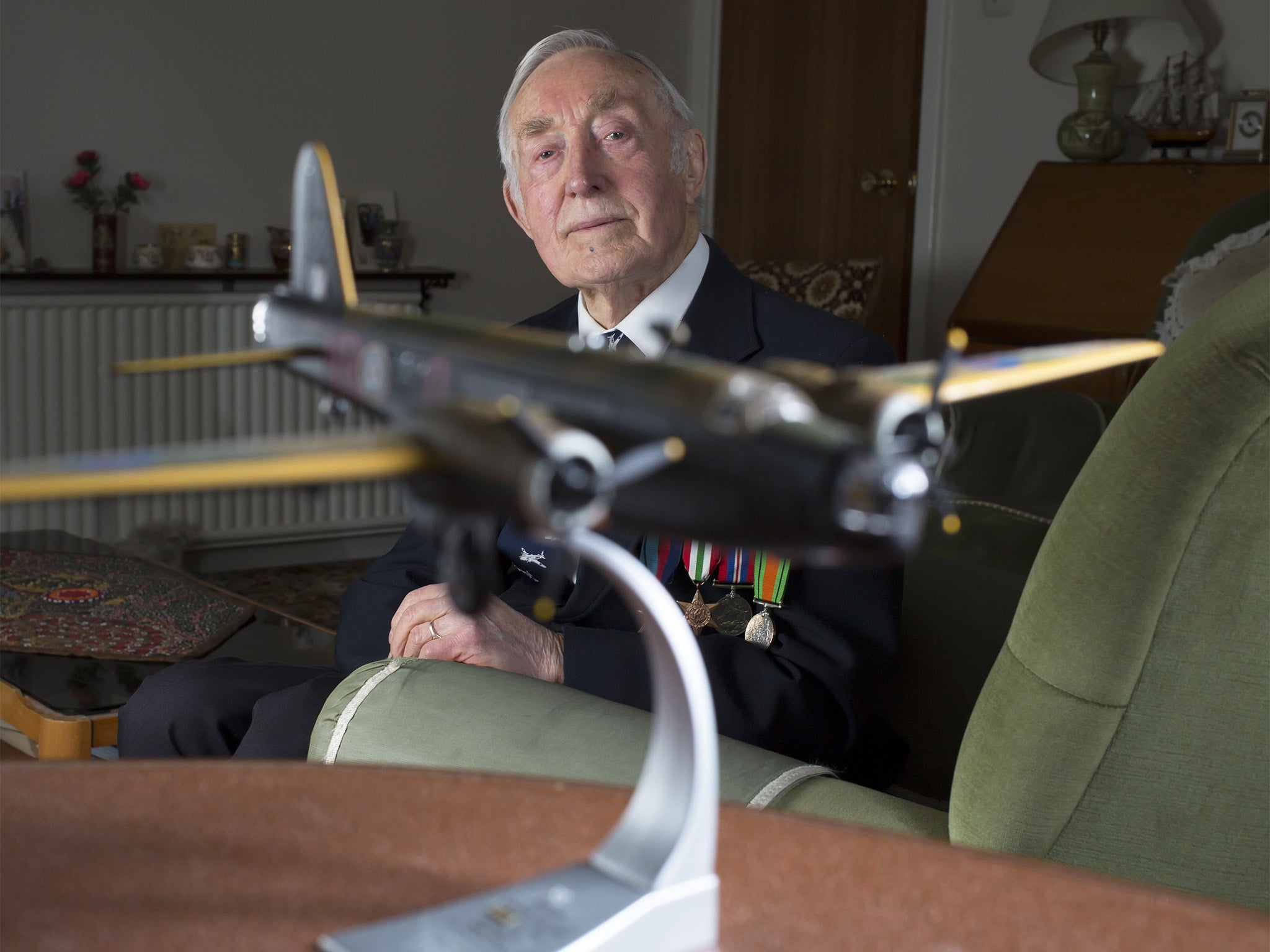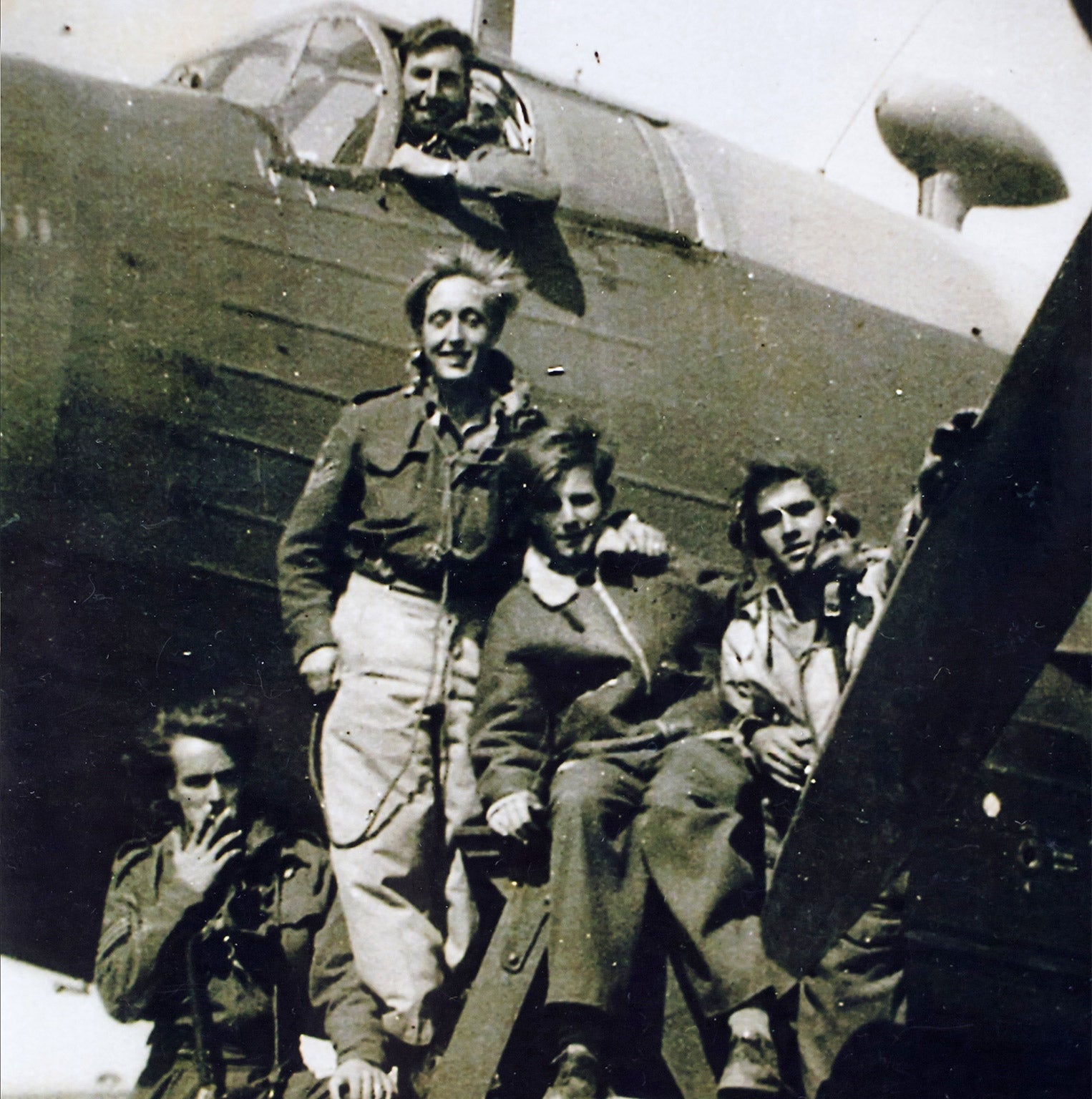Theo Eaves: Second World War RAF veteran calls those who flew from non-UK bases to be recognised with a medal
RAF veteran organises a petition for those who flew from non-UK bases to be recognised with a medal

Your support helps us to tell the story
From reproductive rights to climate change to Big Tech, The Independent is on the ground when the story is developing. Whether it's investigating the financials of Elon Musk's pro-Trump PAC or producing our latest documentary, 'The A Word', which shines a light on the American women fighting for reproductive rights, we know how important it is to parse out the facts from the messaging.
At such a critical moment in US history, we need reporters on the ground. Your donation allows us to keep sending journalists to speak to both sides of the story.
The Independent is trusted by Americans across the entire political spectrum. And unlike many other quality news outlets, we choose not to lock Americans out of our reporting and analysis with paywalls. We believe quality journalism should be available to everyone, paid for by those who can afford it.
Your support makes all the difference.A Second World War RAF veteran has launched a petition for a special honour which was given to those who completed bombing missions from the UK to also be given to aircrew who were stationed in Africa and Italy.
Former warrant officer Theo Eaves, 93, of Cheshire, took part in 35 perilous missions as a wireless operator and emergency air gunner stationed in Italy from 1944 until the end of the war.
After years of campaigning by veterans, the government announced in 2013 that the Bomber Command Clasp, which is attached to the 1939–1945 Star, would be awarded to Bomber Command aircrew who flew over northern Europe from the UK in recognition of their bravery and service. But those who undertook raids over Italy, Africa, the Middle East and the Far East were told they are not eligible for it.
Mr Eaves’ application was turned down and after two years of writing letters to the Ministry of Defence (MoD) he has now launched a petition calling on the government to rectify the situation. I felt this was wrong and unfair,” he said. “I flew 35 sorties with 142 Squadron from bases in southern Italy. We did the same job, we took the same risks, we were sent out by Bomber Command regardless what country we were flying from. We did similar missions as the crews who flew from the UK.
“We received the Italy Star available to all servicemen and women [who served there], but got no special recognition for doing the most dangerous job of the lot.”
Bomber Command suffered extremely high casualty rates: 55,000 died out of 125,000 who served. Many of its veterans believe they have not had the same recognition as their Army and Navy counterparts due to the controversy over civilian deaths in cities like Hamburg and Dresden.

But Mr Eaves said his crew mainly attacked infrastructure targets. “We flew Wellington bombers to attack targets in Germany, France, Italy, Greece and the Balkans,” he said. “We targeted oil installations, communication posts, railway joints and we laid mines in the Danube to stop the barge traffic. We might hold up the German war effort for a fortnight. That was the contribution we made.
“On one occasion we attacked the Hermann Göring tank works, which were very well defended. As we came out, we were attacked by two German night fighters but luckily we lost them in the clouds. Sometimes it was very close. One night 16 planes were sent out and four did not return. That meant 20 aircrew were missing at the breakfast table. It wasn’t easy. We were young, 19, 20, 25 years of age. We’d heard about the atrocities in concentration camps and we all felt that this [Hitler’s regime] was an evil that had to be destroyed.”
The MoD said that while it accepts that some of the bomber squadrons based overseas did undertake sorties into northern Europe, including Germany, these were not formally a part of Bomber Command.
A review by Sir John Holmes into whether aircrew who flew on bomber aircraft which were not formally part of Bomber Command concluded in 2014 that they were not eligible for the clasp.
But the 93-year-old maintains he was trained by Bomber Command and that it was overseeing strategic operations in southern Europe and further afield.
Mr Eaves has gathered more than 5,000 signatures and has the backing of his MP, David Rutley. The veteran added: “If I had flown one flight from Britain I would be eligible for the clasp. I feel the MoD don’t want to be bothered with the extra bit of administration and expense.
“This is what my campaign is trying to sort out, and it’s done in memory of all those men who were killed.”
Mr Rutley, Conservative MP for Macclesfield, said: “I think Theo Eaves is a remarkable man, clearly a very brave crew member on many dangerous bombing raids. I’ve been working hard to ensure that he and others like him receive the recognition they deserve. I’ve met with Lord Howe [Minister of State for the MoD] and received a response from him. Given the brave circumstances that Theo served our country in, I’ve written once again with new information to Lord Howe to see whether this might enable him to receive a Bomber Command Clasp that he so clearly cherishes.”
Mr Eaves was also backed by Labour Shadow Defence Secretary, Emily Thornberry MP, who said: “The cut-off seems arbitrary and unfair. I hope the MoD will reconsider.”
An MoD spokeswoman said: “We have enormous admiration and respect for the unique contribution and sacrifice that bomber aircrew serving outside of the UK made.
“However, Sir John Holmes recommended not to give medallic recognition to those who flew from outside the UK during his Review of Military Medals.
“This decision was made independently of the MOD and subsequently agreed by the Committee on the Grant of Honours, Decorations and Medals and the Queen.”
Join our commenting forum
Join thought-provoking conversations, follow other Independent readers and see their replies
Comments